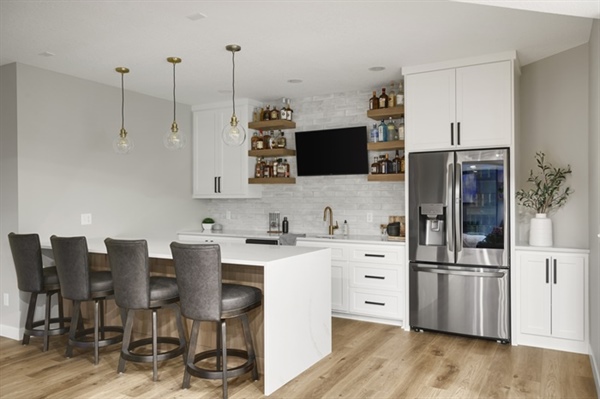What Are the Key Considerations When Planning a Home Remodeling Project?

Planning a home remodeling project is an exciting yet complex process. Whether you’re updating your kitchen, finishing a basement, or adding more living space, careful preparation is key to achieving a successful outcome.
From setting a budget to navigating permits, each step requires thorough planning and decision-making. A well-planned remodel can enhance functionality, increase property value, and improve your overall living experience.
To ensure a smooth remodeling process, several critical factors need consideration. By addressing these aspects early in the planning phase, you can minimize setbacks and make informed decisions throughout the renovation journey!
How Do I Establish a Realistic Budget for My Remodeling Project?
Setting a realistic budget is one of the most important steps in any home remodeling project. Start by assessing the scope of your renovation and researching average costs for similar projects in your area. Factor in expenses such as materials, labor, permits, and unforeseen costs. A good rule of thumb is to allocate an additional 10-20% of your budget for unexpected expenses that may arise during the renovation.
Consider obtaining multiple estimates from contractors to get a clear picture of potential costs. Be transparent about your budget with your contractor to ensure that your expectations align with what is financially feasible. Prioritizing essential renovations over luxury additions can also help keep costs under control.
What Factors Should I Consider When Selecting a Contractor?
Choosing the right contractor is essential to the success of your remodeling project. Look for a contractor with a strong reputation, relevant experience, and proper licensing and insurance. Checking online reviews, asking for references, and reviewing past projects can help you assess their reliability and quality of work.
Communication is another critical factor. A good contractor should be transparent about project timelines, budget expectations, and potential challenges. They should also be willing to answer your questions and provide a detailed contract that outlines the scope of work, costs, and payment schedules.
Ensuring that your contractor specializes in the type of remodeling you’re planning can also contribute to a smoother process. For instance, if you’re remodeling a kitchen or basement, hiring a contractor with experience in those specific areas can lead to better results.
How Can I Ensure My Remodeling Project Stays on Schedule?
Staying on schedule requires thorough planning and proactive project management. Start by working with your contractor to develop a detailed timeline that includes each phase of the project, from demolition to final inspections. Setting realistic deadlines for each step will help prevent delays.
Clear communication between you and your contractor is key to avoiding disruptions. Regular check-ins can help address issues early before they escalate. Additionally, having all necessary materials and permits in place before construction begins can prevent unnecessary holdups.
External factors such as weather conditions and supply chain disruptions can also impact timelines. Being flexible and prepared for minor delays will help you navigate unexpected challenges without significant setbacks.
What Permits Are Required for Different Types of Remodeling Projects?
Permit requirements vary depending on the type of remodeling project and local regulations. Generally, projects that involve structural changes, electrical work, plumbing, or major renovations require permits. Examples include home additions, kitchen remodels with plumbing alterations, and finishing a basement with electrical work.
Failing to obtain the necessary permits can result in fines, project delays, or issues when selling your home in the future. It’s best to check with your local building department to understand what permits are needed for your specific project.
Many professional contractors, including Tschida Construction, handle the permitting process on behalf of homeowners. However, verifying that all permits are secured before work begins can save you from complications later.
How Do I Prioritize Which Areas of My Home To Remodel First?
Prioritizing home remodeling projects depends on factors such as functionality, budget, and long-term value. High-traffic areas like kitchens and bathrooms are often the first choice for renovations due to their significant impact on daily life and home value.
Structural integrity should also be a top priority. If your home has foundation issues, roofing problems, or outdated electrical wiring, addressing these concerns before cosmetic upgrades is crucial for safety and efficiency.
Consider your future plans as well. If you’re remodeling for resale value, focus on projects that offer the highest return on investment, such as modern kitchens, updated bathrooms, and energy-efficient upgrades. If you plan to stay in your home long-term, prioritize renovations that enhance comfort and functionality.
For expert guidance on prioritizing your remodeling projects, be sure to contact Tschida Construction today!